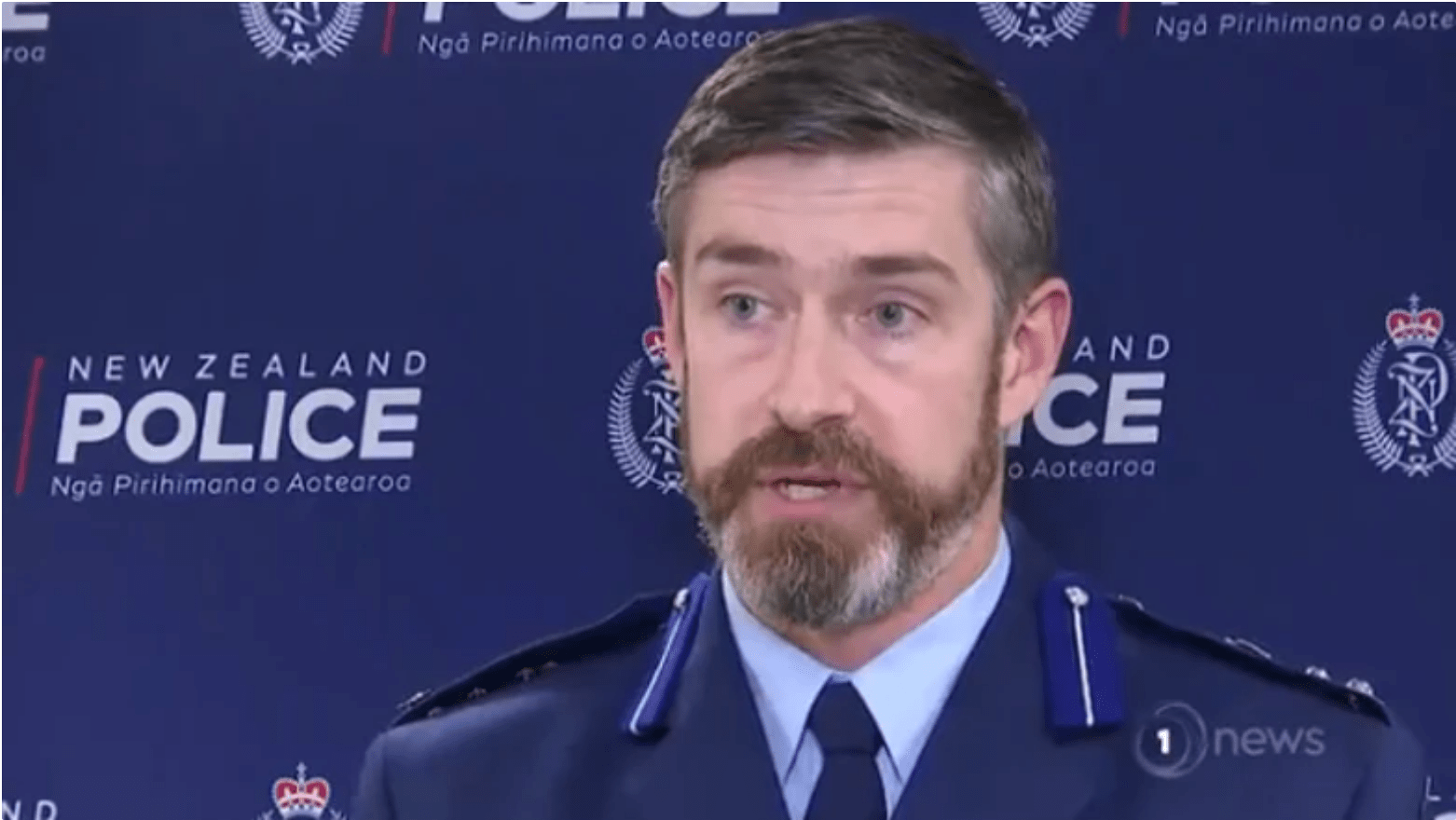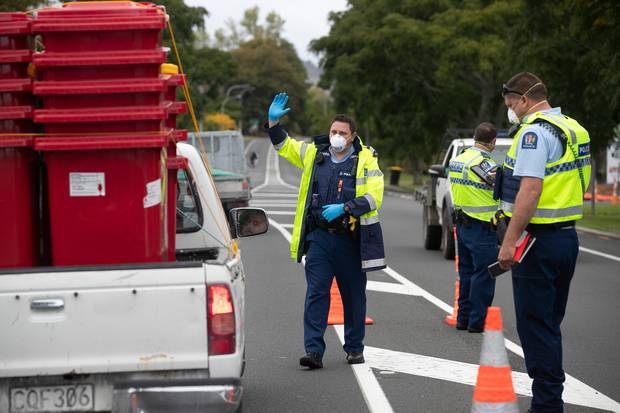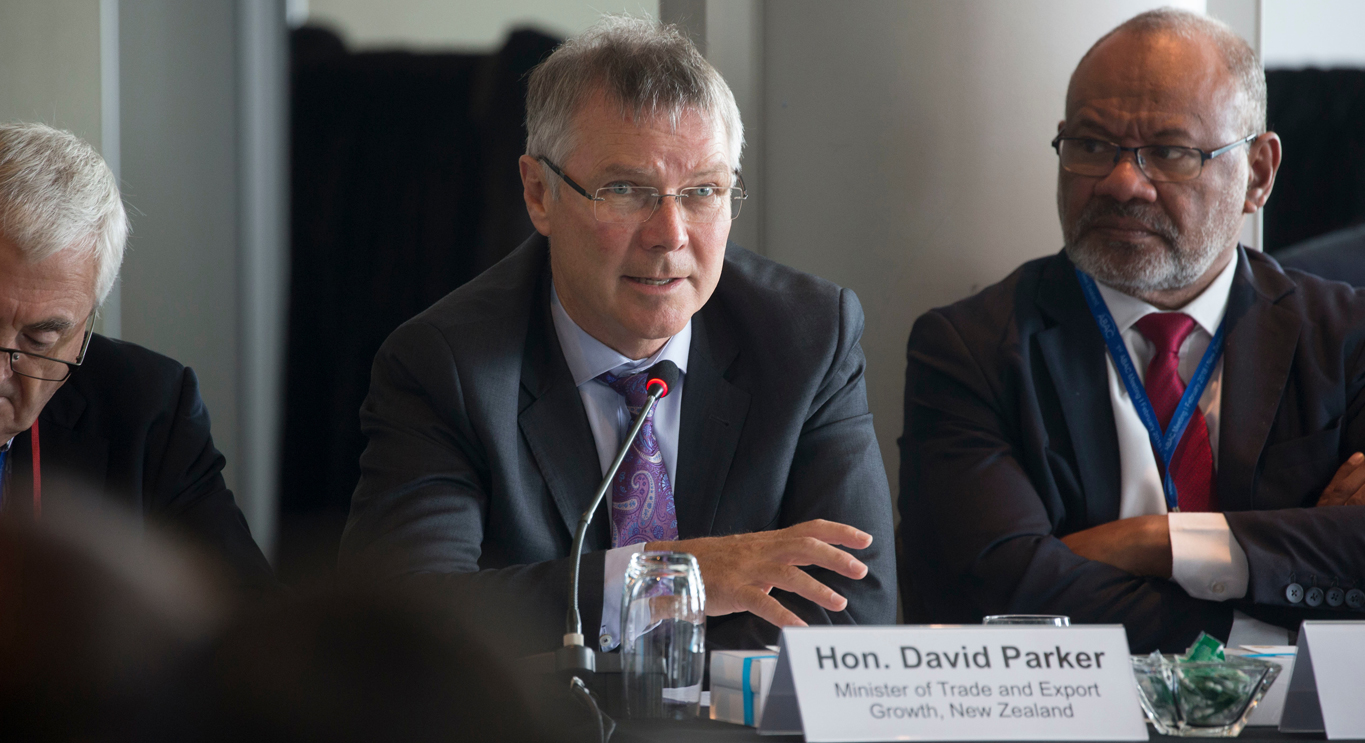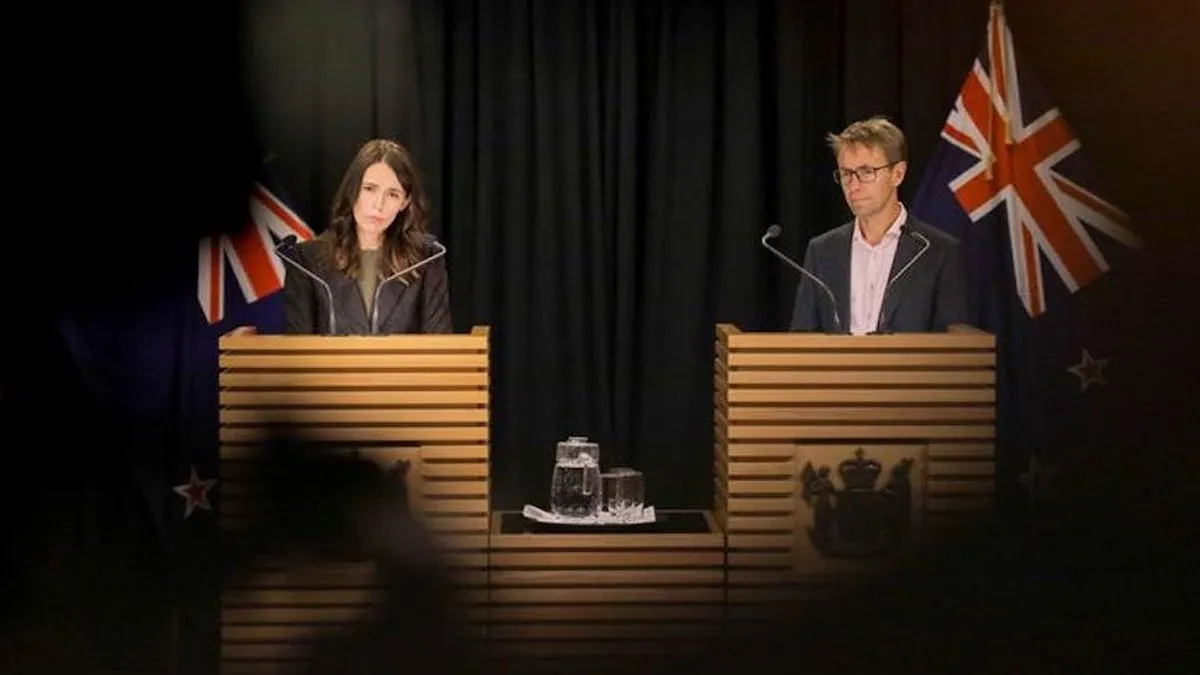Table of Contents
On Monday we published emails leaked to us that showed that the Police had sought and obtained a Crown Law legal opinion on precisely what they could and could not do under the Governments pandemic lockdown edicts.
The emails showed that Police believed, on the advice from Crown Law that there was very little they could do, other than ask people nicely to comply with the edicts.
We have now been leaked the Crown Law advice that Attorney General David Parker, Police Commissioner Andy Coster and former Police Commissioner Mike Bush all refused to release to the public, nor to the Epidemic Response Committee chaired by Simon Bridges.

That advice shows that definitely for the first nine days of the lockdown, the Police and the Government acted ultra vires, acting or done beyond one’s legal power or authority.
The letter dated 27 March 2020, sent to Bill Peoples – Police National Manager – Legal Services from Bronagh McKenna the Crown Counsel is explicit in its advice regarding enforcement of the lockdown. [The Crown Law reference for those wanting to OIA is POL055/2475]
The letter confirms that Police sought advice “on the extent of Police powers to enforce the government’s COVID-19 home isolation campaign that commenced at midnight on 25 March 2020 (isolation campaign)”
The summary in the letter states precisely what powers the Police had at the date of writing the letter:
3. As at today’s date, Police have the following powers to enforce the isolation campaign:
3.1 non-coercive community policing powers;
3.2 following the 25 March 2020 order issued by the medical officer of health (MedOH) under s 70(1)(m) of the Health Act 1956 (Health Act), the power, under s 71A of the Health Act, to do anything reasonably necessary to assist in ensuring compliance with the MedOH order; and
3.3 the power, under s 71A of the Health Act, to enforce individualised directions issued by a MedOH’s under s 70(1)(f) of the Health Act.
4. In situations not covered by the s 70(1)(m) order or an individualised s 70(1)(f) direction, Police do not have the power to detain individuals, stop vehicles, enter property, search individuals or property, in order to enforce the isolation campaign.
5. As a state of emergency has been declared, and for its duration, Police also have the potential to have recourse to certain enforcement powers under the Civil Defence and Emergency Management Act 2002 (CDEMA). However the threshold for the use of these powers is very high. Enforcing general compliance with the isolation campaign is unlikely to meet the high statutory threshold for the exercise of these powers. The CDEMA powers are powers of the last resort, and we recommend that legal advice be sought before their use.
6. Standard Police powers of stop, search and surveillance must be exercised for their statutory purpose, and may not be used to assist Police in the enforcement of the isolation campaign.
7. To minimise legal risk, we recommend that Police’s non-coercive community policing powers be used to the greatest extent possible in encouraging compliance with the isolation campaign, and that resort be made to the s 71A powers only when necessary.
In layman’s terms, the initial nine days of the lockdown was likely illegal and any Police action breached the law.

Crown Law explored further regarding the power Police actually had and stated:
11. … Police may therefore speak to people they encounter about the campaign, inform them about the campaign, inquire as to whether they are complying with the campaign, and request (but not direct) them to comply with the campaign.
12. However in the absence of enforceable power under the Health Act (discussed below), Police Officers have no ability to detain non-compliant individuals, or otherwise enforce the isolation campaign.
Crown Law says that the Police have no ability to enforce the isolation campaign, except for very specific criteria that would be contained with an order under the Health Act, and that is where the issues arise. For the first nine days at least there were no proscribed orders with enough specificity to comply with the Health Act requirements and it is arguable that even the subsequent Health Act order was not specific enough to enable Police to enforce the isolation campaign, within the law. Crown Law then expands on what the Health Act order must say:
14. The exercise of any power under s 71A is contingent on the issue of a direction by a MedOH under s 70. Directions issued by a MedOH in relation to any given activity must be proportionate to the risk posed by that activity.
and;
16. To date, two types of directions have been issued by medical officers of health under s 70: individualised isolation directions and generalised directions.Individualised s 70(1)(f) isolation directions
17. A key power of the MedOH in the context of the isolation campaign is the ability under s 70(1)(f), to require persons to be isolated or quarantined. as he or she thinks fit.
and;
19. Medical officers of health may also issue individualised directions to a group of individuals, where that group is sufficiently identifiable, and the issue of the direction is proportionate to the risk proposed by the group. For example, a MedOH could make an isolation direction to a group of individuals congregating at a particular address for a party, in circumstances where she considers the risk posed by the gathering justifies the imposition of the direction. In the event such a direction is made, police would have the power to enforce it under s 71A.
In other words, unless a specific direction for an individual or a group of individuals has been issued by a MedOH then the Police can do nothing. Therefore stopping people paddle boarding or swimming or surfing or playing frisbee at a park was likely to have been illegal unless in each and every instance a health direction was issued specific to that individual or group of individuals.
For the generalised directions that were issued on the 25 March 2020, the Police were on very shaky ground. Crown Law explores that further too:
25. Where it is unclear whether a given activity falls within the scope of the order (for example whether a particular business is “essential” under the governments guidelines, or whether a particular public place constitutes an “outdoor place of amusement or recreation”, we recommend that legal advice is sought if practicable.
26. In the absence of applicable s 70 directions, Police have no ability to exercise their s 71A powers to enforce the isolation campaign. Specifically outside the scope of s 70(1)(m) order or individualised directions, constables have no power to detain persons, no power to enter premises or vehicles, and no power to search premises or vehicles. In the absence of s 70 directions the government is reliant on voluntary compliance by the public with the requested measures.
27. Moreover, arrest powers for offences reliant on the existence of an unlawful act or breach of a legal duty, such as criminal nuisance, or obstruction of a Police Officer acting in the execution of her duty, are not available in the absence of a legal duty to enforce compliance under s 71A. Nor do we consider that the power to arrest for disturbing the public peace may be exercised for the enforcement of the isolation campaign, we consider the the use of such a power in the absence of a legally binding direction would likely be unlawful.
That covers enforcement under the Health Act. Crown Law then examines the much higher thresholds under the CDEMA.
The advice contained in the summary is reinforced:
28. The CDEMA also sets out certain powers available to Police when a state of emergency has been declared.
29. The threshold for the use of those powers is very high, and their exercise would require a situation-specific assessment of whether the statutory threshold is met in any given case. Enforcing general compliance with the isolation campaign is unlikely to meet this threshold. Where, for example, a threat to life is pre-requisite for the exercise of the power, this threat must be immediate. We consider these powers to be measures of last resort, and recommend that, where there is doubt as to whether the statutory threshold for their exercise is met, legal advice is sought if practicable.
The CDEMA bar sits very high in regard to the exercise of the powers it gives. If the government have been relying on this then they are in serious legal trouble.
Arresting someone for congregating in a park does not meet the high statutory threshold under the CDEMA. It won’t be acceptable to arrest someone for opening their business deemed non-essential.
A good analogy would be using a .50 calibre rifle to shoot a rabbit, the intent of the Act is to deal with an emergency, not get someone out of a park for playing frisbee.
It could perhaps be relied upon in the case of the individual arrested for coughing on people at the supermarket, or those who have been spitting on people.

It is intended, for example, to get Aunty Bessie out of her house if she refuses to move after an earthquake, or if a forest fire is about to engulf her house.
So, it appears the government and the Police have acted ultra vires., and had no real powers to enforce anything.
In paragraph 30 of the Crown Law letter the Crown Counsel, Bronagh McKenna, is at pains to point out that any use of Police powers to evacuate premises, exclude people or vehicles from any premises or place, must be ONLY “necessary for the preservation of life.”
She expands further to say that entering premises is only reasonable if the constable believes on reasonable grounds that that the action is necessary for saving life, preventing injury, or rescuing or removing injured or endangered persons.
Likewise, the power to close roads or public places must be “in order to prevent or limit the extent of the emergency”. She adds that “it is likely that it cannot be interpreted to provide a general authorisation to Police to close roads or prevent public access to places while the national state of emergency of the current kind is in force.”
Further the Police cannot use the CDEMA to direct any person to stop any activity that may cause or substantially contribute to an emergency because the threshold is so high and so fact specific that it can only be used to avert “imminent” danger.
30.5.1 … Activity which involves general non-compliance with the isolation campaign would not meet this threshold (given the power will be interpreted in light of the existence of the specific powers available to the MedOH under the Health Act.)
Crown Law then outlines that standard Police powers can only be used for their statutory purpose. That is they can’t use the powers they have under, for example, the Misuse of Drugs Act to enforce compliance under the Health Act. Or another example used is the use of the Land Transport Act 1988 to stop vehicles.
34. These powers must, however, be exercised in good faith for the purpose for which they were given and to meet the relevant policy goals of ensuring road safety. There must be no “ulterior motive” to the use of those powers. Use of the LTA powers to seek to enforce or support the isolation campaign would be unlawful.
Crown Law advises that standard stop, search and surveillance powers available to police will not assist it in enforcing the isolation campaign.

No wonder David Parker and the Police Commissioner wanted this kept secret. It is now clear that the first nine days of the lockdown were outside of the law and any person or business harassed by Police to comply would now likely be able to have any charges dropped, and any damages made good because of the ultra vires actions of the government and the Police.
A government that breaks its own laws and enforces those illegal actions is no longer democratic. It is now operating in a despotic manner. The sad fact is that without the actions of whistleblowers bringing this into the open then the situation would have continued to occur. It is also likely that the entire lockdown under level four and possibly many aspects of level three are still illegal because of the lack of specificity of Health Act directions.
An urgent inquiry now needs to be undertaken. The Police, at least, clearly knew that enforcement of the isolation campaign was illegal. There must surely be a paper trail between Police, the Prime Minister and the Director-General of Health, Ashley Bloomfield, that shows that they knew the lockdown was illegal, but that they proceeded anyway.
When governments break their own laws they must be held to account, and this whole show has been run from both the Prime Minister’s office and the office of Ashley Bloomfield. They have, prima facie, acted illegally and wrecked the economy, businesses and peoples lives as a result. They must be held to account.
Question 3 in Question Time today showed that the government is sailing on in blind disregard of the law:
The Prime Minister has admitted that she knew about the advice, and ignored it. She has intimated that the advice was draft and she constantly referred to David Parker, the Attorney General. The problem the Prime Minister has is that they are still refusing to release the advice and so now a principled whistle-blower has. They can hide from it no longer.
David Parker likewise must be called to account. It is his role to ensure the government adheres to its own rules. He has a copy of the Crown Law advice and he refused to release it. Moreover, he insisted that everything was fine. The Crown Law advice is clear that it was not fine, in fact the Police lacked any proper powers and any powers they did have could only have come from the Medical Officer of Health. Those directions were so vague as to be unenforceable.
A democratic government in breach of its own laws is no longer a democratic government, it is a dictatorship, or a police state at the very least.
Citizens have every right now to be very angry at their government, rather than thankful.









